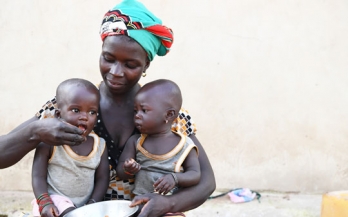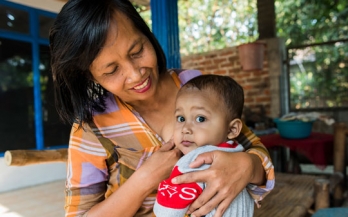This factsheet describes the nutritional benefits of eggs for key target populations. Eggs are among the best food sources to improve diet quality in infants, as they contain nutrients which help brain development and physical growth.
The "Menu of actions to shape urban food environments for improved nutrition" has been developed by GAIN, the Milan Urban Food Policy Pact (MUFPP) Secretariat and the RUAF Foundation as a reference document that seeks to meet this need. It contains a large number of examples of policies and programmes, from countries in every region and in all income bands, to inspire and encourage other cities to initiate actions.
Urban governance for nutrition is the process of making and implementing decisions that shape sustainable food systems to deliver better nutrition for people in cities. The Framework on Urban Governance for Nutrition and the guide for implementation provide guidance on how city governments and stakeholders can determine appropriate actions to address urban nutrition priorities.
Over half of the world’s population live in cities. By 2050, it is expected that almost 7 out of 10 people will reside in cities, with 90% of this growth occurring in Africa and Asia. Urbanisation is linked to increasing rates of overweight and obesity, yet undernutrition is also prevalent in cities. These areas are confronted by an increasingly complex challenge to address malnutrition in all its forms.
The framework comprises a set of drivers, plus four determinants (food supply chains, external food environments, personal food environments, and behaviours of caregivers, children and adolescents), which together influence the diets of children and adolescents.
This paper describes an innovative behaviour change communication project, implemented as part of the Baduta project, including rationale and early impacts. Baduta was a multi-component project developed by the Global Alliance for Improved Nutrition (GAIN), together with partners, to improve maternal and infant nutrition.
The FACT provides details on how to plan, design, implement, analyse, and report a FACT survey. It was designed to help stakeholders collect, analyse, and synthesise standardised data on quality, coverage, and consumption of fortified foods, and fills a gap in the availability of standardised tools to generate information to understand how well programmes are working and how to improve them.
On 3 and 4 July 2019, The Global Alliance for Improved Nutrition (GAIN) and The Consumer Goods Forum (CGF) organised a meeting in Geneva to discuss the why, what and how of improving employee nutrition. The meeting was attended by a broad range of stakeholders who are actively involved in Workforce Nutrition programmes. This paper reports on the discussions and outcomes of the workshop.
The Global Alliance for Improved Nutrition (GAIN) and the World Health Organization (WHO) organised a consultation in Geneva in June 2018, which brought together more than 80 researchers, practitioners, policymakers and youth organisations, as well as adolescents from Pakistan, Bangladesh, Indonesia and Zambia. This paper reports on the discussions and outcomes of the workshop.
Food systems are essential to delivering healthy, affordable and sustainable diets, but the nutritional needs of children and adolescents are often not prioritised. UNICEF and GAIN co-hosted a global consultation on children, adolescents and food systems in November 2018.










